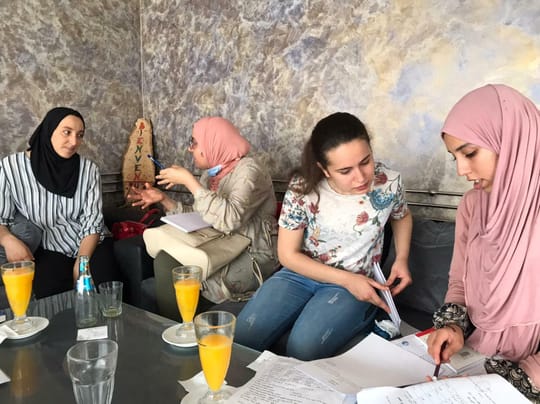Making Sense of ‘Empowerment’ and Its Role in Achieving Development Goals

The concept of empowerment is one that is referenced quite regularly in academic and activist realms as it pertains to achieving equality for underprivileged groups. However, the term ‘empowerment’ is used so frequently that it has become difficult to ascribe a single definition to it or to create a definitive list of the outcomes that it aims to achieve. In the context of global development, however, the empowerment of marginalized groups is a truly crucial element of sustainable development, as it plays a key role in increasing economic growth, education rates, and workforce/public space integration, as well as generally addressing issues of gender inequality within developing countries.
In Morocco, similar effects have been observed through empowerment efforts undertaken by organizations like the High Atlas Foundation and other NGOs in the region, particularly through their initiatives directed at women. So, what does ‘empowerment’ really entail? And how exactly does the empowerment of women, in particular, result in these advances in development?
According to responses to a United Nations survey of individuals worldwide regarding the meaning of the term, ‘empowerment’ generally refers to a method of social development typically directed towards marginalized or disenfranchised groups that is meant to increase the ability and power of individuals and groups to make decisions about their own lives and take action as they see fit.
In other words, empowerment is meant to provide people and their communities with a sense of autonomy and self-determination. One reason for the variation of definitions is that it is difficult to quantitatively measure the degree of empowerment and self-determination felt by individuals and collectives.
However, empowerment activities and experiences among disenfranchised groups in developing countries, particularly those involving women, are correlated with real gains in other tangible measurements of development, and that is why incorporating empowerment programs and activities into development initiatives is crucial. In fact, the UN’s 2030 Agenda for Sustainable Development highlights empowering women and girls as one of its foremost goals under its Gender Equality initiative.
Another reason that empowerment has become somewhat of an amorphous term is because it takes on a different meaning depending upon the context in which it occurs. In Morocco, HAF’s empowerment program largely focuses on personal and cooperative development and takes a rights-based, educational approach to advance women’s understanding of their rights under the 2004 Moroccan Family Code (Moudawana), of which many women, particularly those in rural areas, lack a thorough understanding. This empowerment program aims to directly address some of the main obstacles to gender equality in Morocco and provide women with the skills, knowledge, and means to overcome these obstacles within their own communities. Similar empowerment experiences have been shown to increase girls’ enrollment in schools and women’s participation in the labor force, which contribute to country-wide economic growth.
Currently, despite making up approximately 50% of Morocco’s general population, women comprise only about 21.16% of the country’s labor force. Studies have shown that Moroccan women are less likely to be active in the labor force if they are married and/or surrounded by other inactive women, even with the existence of other factors that are correlated with higher participation rates like lower fertility rates and higher education levels.
By attending empowerment programs alongside other women who may have thriving businesses of their own or who financially support themselves, participants will be able to witness Moroccan women just like them claiming their own financial and social independence, which removes social pressures to conform to what is perceived as typical women’s work.
Additionally, in the self-discovery elements of empowerment activities, women are aided in finding their own voices and using them within their communities. This element of empowerment aids women in establishing larger roles within community development planning processes that have the potential to increase their access to productive resources both within their household and in their communities at large.
While empowerment programs have proven to be effective in improving women’s capacities for change-making in their own lives, they cannot combat obstacles to development alone.
This is because empowerment has to be accompanied by a shift in overall social attitudes and restrictive legal frameworks, as well as access to the necessary resources that will mitigate the extreme poverty that often contributes to high rates of early marriage and school dropout among Moroccan women. While there is still significant progress to be made, empowerment initiatives being taken across Morocco represent important initial steps towards ultimately reaching some of the paramount goals of development.